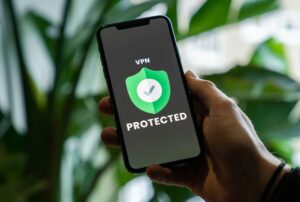A Virtual Private Network (VPN) helps you access geo-restricted content by masking your real-world location. It achieves this by routing your internet connection through a secure server in a different country, making it appear as if you are browsing from that location instead of your own.
Geo-blocking is a practice used by websites, streaming services, and online retailers to limit access to their content based on a user’s geographical location. This is often done to comply with licensing agreements, copyright laws, or to implement different pricing strategies in various regions. A VPN serves as an effective tool to bypass these digital borders.
How a VPN Bypasses Geo-Blocks
When you connect to the internet, your device is assigned a unique IP address that reveals your physical location. Geo-blocking systems use this IP address to determine whether to grant or deny you access.
A VPN circumvents this system through the following process:
- Masking Your IP Address A VPN hides your actual IP address and replaces it with one from the VPN server you connect to. For instance, if you are in the UK and connect to a server in the U.S., you will appear to have a U.S.-based IP address.
- Encrypted Tunneling The VPN creates a secure, encrypted connection, often called a tunnel, between your device and the remote server. This ensures your online activities are private and secure from your Internet Service Provider (ISP), governments, or other third parties.
- Accessing Content With your new, location-specific IP address, you can log in to services that are exclusive to that region. Streaming platforms or websites will see the server’s location and grant you access as if you were physically there.
How to Use a VPN to Access Geo-Restricted Content
Using a VPN to bypass geo-restrictions is a straightforward process:
- Choose a VPN Provider Select a reputable VPN service and subscribe to a plan. Many providers offer a money-back guarantee.
- Install the Application Download and install the VPN app on your chosen device, such as a computer, smartphone, or tablet.
- Connect to a Server Open the app and select a server in the country where the content you wish to access is available. For example, to watch Hulu, you would connect to a U.S. server.
- Browse Freely Once connected, navigate to the website or streaming service. The content should now be accessible. If you encounter issues, clearing your browser’s cache and cookies can often resolve the problem.
Additional Benefits and Alternatives
Beyond bypassing geo-blocks, VPNs offer other significant advantages, including enhanced online privacy, anonymity, and security, especially when using insecure public Wi-Fi networks.
While other tools can also bypass geo-restrictions, they often come with drawbacks:
- Proxy Servers Like VPNs, proxies route your traffic through an intermediary server, but they are generally less secure and may not offer the same level of privacy.
- DNS Changers Changing your DNS server can sometimes trick services into thinking you are in a different location, but this method is less reliable than a VPN.
- Tor Network The Tor network provides strong anonymity by routing your traffic through multiple servers, but it is often much slower than a VPN and not ideal for streaming.
For securely and reliably accessing global content, a quality VPN is widely considered the most effective solution


